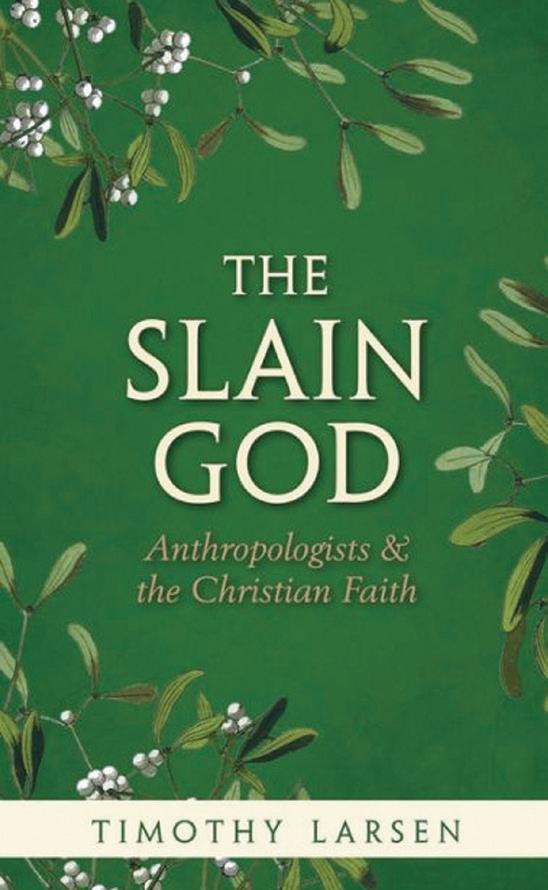
3 minute read
humanity? Our hunger for the sacred
IMAGINE IF EVERYONE THOUGHT FRUIT WAS POISONOUS. WE’D SURVIVE BUT WE’D NEVER KNOW THE FEELING OF A RIPE PEACH BURSTING WITH FLAVOUR, THE CRISP COOLNESS OF WATERMELON, THE SWEET YIELDING FLESH OF A STRAWBERRY.
Or imagine if all human procreation was performed without sex. It is one thing to voluntarily give up fruit or sex. But it’s wholly another to not even know what they’re like.
Advertisement
People who say they’re not religious are often having all kinds of sacred experiences; they just don’t call them that.
You’re watching a David Attenborough documentary because it’s beautiful, and you’re concerned about the damage our species is doing to our complicated and fragile world. As the haunting cry of the whales makes you cry, is it possible you are having an experience of the sacred?
To wander in an ancient wood at twilight, is this not to know the sacred? Was not all of Harry Potter an experience of the sacred for its fans? Are not art-house horror movies a shudder of the sacred? Are not Guillermo del Toro and Neil Gaiman catering to our unmet needs for the sacred?
The unexamined hostility to religion which pervaded an earlier generation of anthropologists is giving way to a more sympathetic and nuanced understanding of religion and the role that it plays in the human imagination. This is the story that emerges from Timothy Larsen’s masterful study The Slain God: Anthropologists and the Christian Faith . “The slain God” was an expression popularized by Victorian anthropologist James Frazier who pointed to this recurrent motif in many ancient religions seeking implicitly to debunk Christianity. Contrasting with Frazier are husband and wife anthropologists Victor and Edith Turner who were world experts on the Ndembu people of Zambia. In their later years they converted to Catholicism and elucidated the nature of play, ritual, theatre and liminality in culture around the world.

In The Slain God: Anthropologists and the Christian Faith , Timothy Larsen illustrates the shift in anthropology from a stance of skepticism and debunking religion to one of engagement and even defense of religious beliefs. Larsen particularly highlights how influential anthropologists such as E.E. Evans-Pritchard, Mary Douglas, and Victor and Edith Turner challenged earlier notions that sought to discredit Christianity.
The thing about every religion is that it demands you look at life through its lens. There is not a single vibrant religion that says, “Hey, it’s all good; feel free to combine us with any other symbolic systems you like.”
Imagine if you told your romantic partner, “I love you – just like I love everybody.” That’s not going to fly. They want you to choose them , to be true to them and their specific and unique nature.
Religion, like romance, requires commitment. The word religion, after all, has the same root as ligament – a tie, a binding that connects. You connect to the sacred through religion and you do so in a tied-together community.
So, if your soul hungers for the sacred as your body does for food, why starve it? Why not do the same as you would with food, and not just eat anything, but hold out for the best, the highest quality, naturally grown, bursting with flavour?
And what if the answer is right in your own backyard? What if you actually don’t need to fly to India to find it?
It’s hidden in plain sight.
It’s Catholicism.
A little bit of exploration and you will uncover some of its great treasures: v Sacred music from Gregorian Chant to Renaissance polyphony to Mozart’s Requiem to Rutter’s The Lord is My Shepherd. v Cathedrals. Not just relics of the past, they are continuously coming back to life and even burst forth brand new like Gaudi’s Sagrada Familia, one of the most extraordinary structures of the modern world. v Centuries of some of the world’s great paintings. v Some of the longest lasting charitable organizations in the world. v The progenitor of the modern university and its tradition of open inquiry and free thinking.
It’s always been there, just waiting for you to plunder it.
All it takes is your attention and a willingness to explore and learn. u sometimes I feel like a motherless child, A long way from home.










It gets so lonely sometimes
I just want to cry.” — Spiritual










